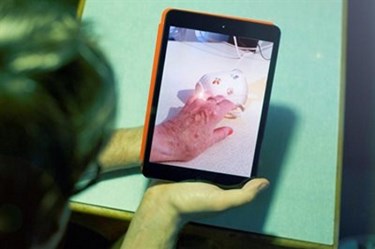Immersive Tech Provides Glimpse Into Parkinson's Disease
By Chuck Seegert, Ph.D.

Dizziness, speech problems, and hand tremors like those seen in Parkinson’s disease have been simulated through wearable tech and a low-cost computer system. The novel experience is designed to improve how caregivers treat patients with the degenerative disease.
Young onset Parkinson’s disease is a neurodegenerative disease that affects people at a relatively early age. Its symptoms include dizziness, tremors, and speech problems, and there is no known cure. These patients are highly dependent on their caregivers who can have a significant impact on their quality of life.
Giving caregivers a glimpse into the life of a Parkinson’s patient was the goal of a project undertaken by the Analogue theatre company, according to a recent press release from the Royal Holloway University of London. The technology has been named “Transports,” and it is based on the low-cost Raspberry Pi computer system. Importantly, it also includes a piece of wearable tech that causes a 6 Hz tremor in the user’s right hand.
The simulator was designed in collaboration with professor Narender Ramnani from the Royal Holloway department of psychology, according to the press release. In addition, many caregivers, researchers, and patients were involved to ensure the system was emulating the disease as closely as possible.
“Our principal interest is to work out how we can improve and facilitate communication and empathy by using simple technologies to immerse participants in the remote embodied experiences of others,” said Liam Jarvis, the co-director of Analogue and a drama Ph.D. student at Royal Holloway, in the press release. “Using inexpensive Raspberry Pi technology, we hope to expand the project to place participants inside different virtual subjects as an aid to better understand the experience of others.”
The team plans to test the system further with the help of psychology undergraduates and has planned at least one public showing, according to the press release.
Patient simulators have also been used to help student surgeons become more familiar with complications after surgery, according to a recent article on Med Device Online.
Image Credit: Royal Holloway, University of London
